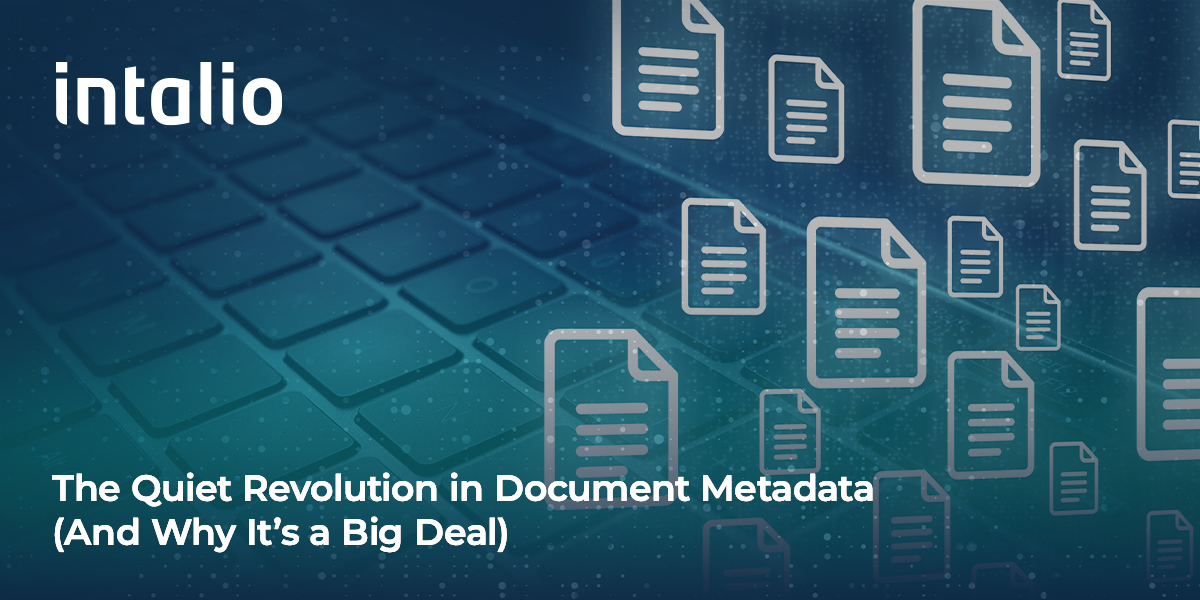Metadata has long been an afterthought for large enterprises, but that’s slowly changing. As organizations grapple with dispersed content repositories and complex workflows, metadata is a breath of fresh air, not just for content marketers but even for teams managing internal processes and compliance.
There was a time when metadata only contained basic information like the title of a document or its date of creation. Now, there are layers upon layers of additional context that metadata offers including access information and even keywords associated with the document. With this level of detail, metadata is no longer just data about a document but a framework for managing that content in meaningful ways.
More Than Just Tags: What Metadata Enables
When content is created or uploaded into a system, the way it’s classified determines how useful it becomes. A contract or other document that’s simply stored doesn’t offer much benefit, but a contract enriched with metadata—such as expiration dates, related account information, regulatory flags, and ownership roles—becomes a dynamic, trackable asset.
This shift is especially evident in content-heavy industries like finance, government, and healthcare. Due to the nature of their operations, the ability to retrieve the right document at the right time in these industries isn’t just a good-to-have but a necessity. With metadata-based search, teams can find these documents in a matter of seconds, reducing bottlenecks, improving accuracy, and reducing compliance risks. When done right, it also reduces operational overhead by cutting down on manual search and rework.
At its best, metadata links content to processes, people, and to outcomes. It enables automation, drives insights, and supports governance from the moment a document enters the system.
Why Metadata Is Gaining Popularity
As mentioned earlier, metadata helps organizations with a lot more than just storage. With metadata, organizations can manage and sort documents easily, understand the context behind a document, and even get a better understanding of its history and version control. Here are some areas in which metadata’s importance shines through:
- Volume and complexity of content: With billions of bytes of new data being produced every single data, metadata becomes the only scalable way to organize and retrieve information efficiently.
- Heightened compliance pressure: Regulatory frameworks now require businesses to maintain detailed records, enforce access controls, and demonstrate audit trails—all of which metadata supports.
- Process automation and AI adoption: Metadata enables intelligent workflows, where content can be searched, sorted, managed, or archived based on business logic or predictive models.
How Intalio Makes Metadata Actionable
At Intalio, we understand the role metadata plays in scalability, flexibility, and compliance in any organization. This is why a metadata engine lies at the core of our Enterprise Content Management platform that does more than just store descriptive fields. It actively participates in how documents are handled and understood across the enterprise.
With our enterprise content management solution, you can build dynamic metadata models tailored to your business context. Whether you’re managing legal contracts, HR documentation, or customer communications, these models are designed to evolve alongside the increasing volumes of data your organizations deal with.
Through automated tagging, intelligent extraction, and integration with business rules, Intalio ensures that metadata is consistently applied and deeply embedded into your processes.
Rethinking the Role of Content in Your Organization
There’s a quiet revolution underway not in how much content organizations store, but in how that content is structured. Ready to experience the power of metadata-based content management? Book a demo with Intalio today to find out how we can help.










